

2020-03-19 13:39:00 Thu ET
technology apple artificial intelligence patent intellectual property trademark copyright proprietary assets flywheel team dynamism team leaders perseverance resilience smart collaboration founders senior managers passion rare resources reinvention purpose vision holistic product development steve jobs iphone ipad
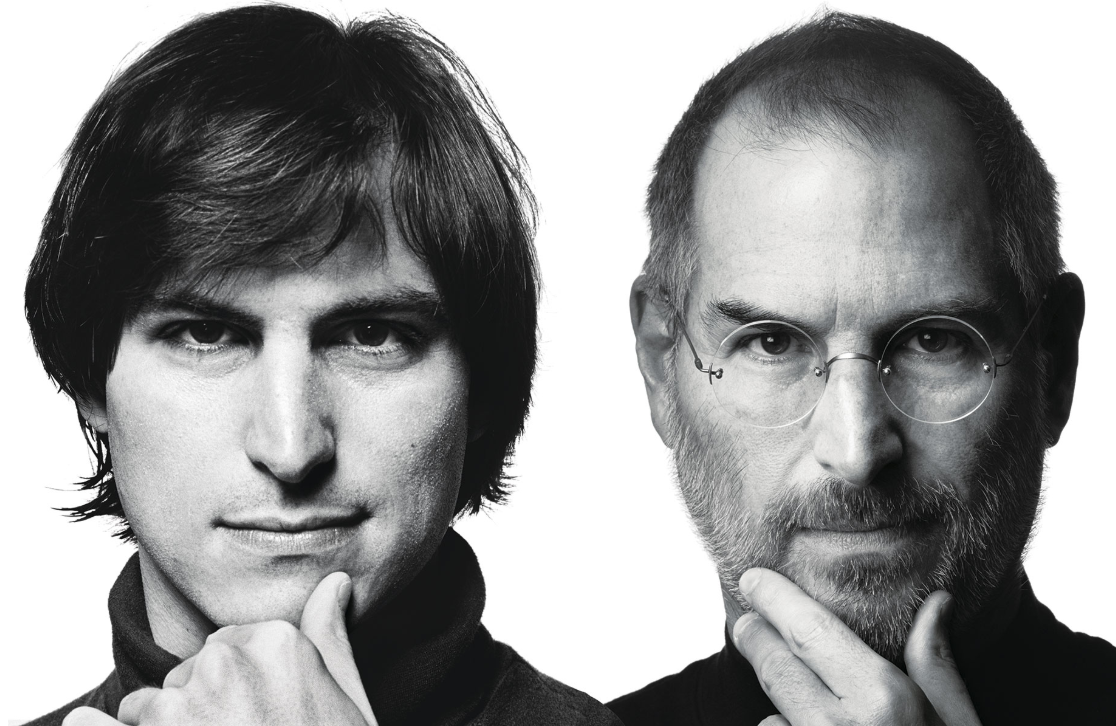
The business legacy and sensitivity of Steve Jobs can transform smart mobile devices with Internet connectivity, music and video content curation, and digital photography.
Jay Elliot with William Simon (2011)
The Steve Jobs way: iLeadership for a new generation
In this book, the co-authors Jay Elliot and William Simon analyze the best business practices of Steve Jobs, and these best practices can serve as core principles and guidelines for senior executive leaders who retain a relentless focus on business innovation. Business innovation often motivates key senior executive leaders to be passionate about product and service provision, lean startup, continual progress, and user experience. Following the legacy steps of Steve Jobs, effective business leaders such as Tim Cook, Jeff Bezos, Satya Nadella, Sundar Pichai, Elon Musk, and so forth emphasize team accountability, camaraderie, multilateral recruitment and talent retention, and holistic product development.
At Apple, Steve Jobs was passionate about perfecting his product. Jobs wanted to ensure that his team worked on smart product design and development to the best of their capabilities. Jobs wanted users to experience the delight of design mastery, and thus he insisted that Apple products should be completely intuitive to operate regardless of user age and technical ability. Jobs kept his intense focus on product details, features, and other inventive elements. This focus was one of the keys to his business success and product popularity. Jobs subjected every product feature, detail, or decision to close scrutiny. Also, Jobs envisioned how each product would fit into the routine daily life of the typical end user. At Apple, Jobs often pushed his designers, programmers, and software engineers to think of new solutions in order to enhance product quality. His personal habit of close involvement in every detail of product development made some people nervous and anxious, but eventually employees began to accept that his intense scrutiny of key product details was no equivalent to micro-management elsewhere.
This peculiar insistence on intuitive product design made Apple user experience so positive that many users would form emotional bonds with their mobile devices. These mobile devices included iPhones, iPads, iPods, and MacBooks etc. Jobs emphasized the unique view that getting the right product design would be more important than launching the product on time.
In 1980, the successful Apple IPO made Steve Jobs a high-net-worth man. Apple rewards came in the form of salaries, bonuses, and stock options. Moreover, Jobs received generous financial support from Apple for his air transport and health care etc. At Apple, Jobs felt that work was not just about making money. For Jobs, Apple product design was about leading his team to develop smart world-class products for better customer delight.
Steve Jobs maintained his unique team management style.
In terms of team formation, Steven Jobs looked for different, complementary, and sometimes even unconventional team members. His executive management team worked together toward the common goal of smooth smart product development cycles. Jobs tried to keep each product team small because a large group might lead to the dull duplication of individual efforts with multiple layers of managerial approval. These organizational barriers would inadvertently obstruct the free flow of ideas within Apple. Maintaining small teams cultivated better team accountability because each individual contributor would not want to let down their teammates.
Jobs brought out the creative genius in many Apple designers, programmers, and software engineers. There was a general expectation that everyone would need to speak up fresh facts, business insights, inconvenient truths, or even bad news etc. At the same time, Jobs was in control of almost all open discussions within Apple. People tolerated his peculiar management style because Jobs kept his relentless focus on product design. By delving into the details, features, and other inventive elements of each iPhone, iPad, or iPod, Jobs convinced his team that Apple was shaping the course of the market for high-tech mobile devices. Jobs and his team worked marathon hours to be the change that people would like to see in the world.
In many interviews and casual conversations, Jobs evaluated each job candidate in terms of his or her past achievements and what the candidate could bring to the company. Jobs met potential new hires with an open mind and no pre-set agenda. Some of his hires were unconventional by most business school standards. This violation of both standard norms and best practices empowered Jobs and his team to accomplish a great deal for better user experience.
Jobs sought out designers, programmers, and software engineers whose talent, artistry, and technical competency infused almost all team projects. Every 5 years, each Apple employee would get one month off with key sabbatical pay to revitalize creative thoughts and ideas. The biggest reward for Apple employees came in the sense of accomplishment that they felt when Apple launched some new products. This employee satisfaction was enormous.
Jobs left Apple to tap into the uncharted territories of NeXT and Pixar.
In the early-1980s, Apple was in serious trouble since there was no clear product-market fit for the pricey Macintosh Office laser printer. The steady sales and pricey products masked the problem from senior management until it was almost too late. Jobs tried to rescue Apple by turning the company into a product-driven business organization. Jobs wanted to offer key price discounts to boost sales for Macintosh, but Apple CEO John Sculley disagreed with Jobs and so deferred to the judgment of the board of directors. In fact, Jobs had convinced Sculley to join Apple to work together to *change the world* (instead of continuing to sell sugar water at PepsiCo for the rest of his life). Nevertheless, the board of directors demoted Jobs to Chief Technical Officer outside the Macintosh product team. Jobs chose to leave Apple for the next 10 years. In retrospect, Jobs never forgave Sculley because they were never able to repair their friendship.
Jobs founded NeXT to build personal computers (PCs) for college professors and students who could use these PCs as virtual labs. Also, Jobs acquired Lucasfilm digital content animation unit and transformed this unit into what would later become Pixar. During this decade, Apple started to experience a major deterioration in product sales because the company no longer kept its focus on smart product design. In 1996, Apple had a desperate need for a new operating system. Jobs made a sales pitch that caused Apple to purchase his operating system, NeXTStep, along with the rest of the company. Part of the deal was for Jobs to be the next CEO at Apple.
Jobs focused on holistic product development when he returned to Apple.
When Jobs became the new CEO at Apple, he cut the product line drastically from dozens of products to only 4 core products. He was even adamant about scrapping legacy products with steady sales in order to pursue better business innovation. In essence, Jobs chose quality over quantity because one home run would be better than 2 doubles. This new direction led Jobs to pursue holistic product development at Apple with better mobile connectivity and digital content curation.
Holistic product development required the software and hardware groups to work together as a team. This team reorganization helped ensure compatible software and hardware components of each holistic product. At Apple, product developers committed themselves to designing the best holistic and feasible products. Holistic product development empowered Jobs and his team to innovate new smart mobile products at Apple in the next 20 years. Key good examples included iPods, iTunes, iPhones, and iPads. This successful sequence of smart products catapulted Apple to become the top tech titan with the highest stock market capitalization in America. In late-2010s, Apple became the first U.S. public corporation to bypass $1 trillion stock market valuation (well before Amazon and Microsoft).
This analytic essay cannot constitute any form of financial advice, analyst opinion, recommendation, or endorsement. We refrain from engaging in financial advisory services, and we seek to offer our analytic insights into the latest economic trends, stock market topics, investment memes, personal finance tools, and other self-help inspirations. Our proprietary alpha investment algorithmic system helps enrich our AYA fintech network platform as a new social community for stock market investors: https://ayafintech.network.
We share and circulate these informative posts and essays with hyperlinks through our blogs, podcasts, emails, social media channels, and patent specifications. Our goal is to help promote better financial literacy, inclusion, and freedom of the global general public. While we make a conscious effort to optimize our global reach, this optimization retains our current focus on the American stock market.
This free ebook, AYA Analytica, shares new economic insights, investment memes, and stock portfolio strategies through both blog posts and patent specifications on our AYA fintech network platform. AYA fintech network platform is every investor's social toolkit for profitable investment management. We can help empower stock market investors through technology, education, and social integration.
We hope you enjoy the substantive content of this essay! AYA!
Andy Yeh
Chief Financial Architect (CFA) and Financial Risk Manager (FRM)
Brass Ring International Density Enterprise (BRIDE) © 2013-2023
Do you find it difficult to beat the long-term average 11% stock market return?
It took us 20+ years to design a new profitable algorithmic asset investment model and its attendant proprietary software technology with fintech patent protection in 2+ years. AYA fintech network platform serves as everyone's first aid for his or her personal stock investment portfolio. Our proprietary software technology allows each investor to leverage fintech intelligence and information without exorbitant time commitment. Our dynamic conditional alpha analysis boosts the typical win rate from 70% to 90%+.
Our new alpha model empowers members to be a wiser stock market investor with profitable alpha signals! The proprietary quantitative analysis applies the collective wisdom of Warren Buffett, George Soros, Carl Icahn, Mark Cuban, Tony Robbins, and Nobel Laureates in finance such as Robert Engle, Eugene Fama, Lars Hansen, Robert Lucas, Robert Merton, Edward Prescott, Thomas Sargent, William Sharpe, Robert Shiller, and Christopher Sims.
Follow AYA Analytica financial health memo (FHM) podcast channel on YouTube: https://www.youtube.com/channel/UCvntmnacYyCmVyQ-c_qjyyQ
Follow our Brass Ring Facebook to learn more about the latest financial news and fantastic stock investment ideas: http://www.facebook.com/brassring2013.
Free signup for stock signals: https://ayafintech.network
Mission on profitable signals: https://ayafintech.network/mission.php
Model technical descriptions: https://ayafintech.network/model.php
Blog on stock alpha signals: https://ayafintech.network/blog.php
Freemium base pricing plans: https://ayafintech.network/freemium.php
Signup for periodic updates: https://ayafintech.network/signup.php
Login for freemium benefits: https://ayafintech.network/login.php
If any of our AYA Analytica financial health memos (FHM), blog posts, ebooks, newsletters, and notifications etc, or any other form of online content curation, involves potential copyright concerns, please feel free to contact us at service@ayafintech.network so that we can remove relevant content in response to any such request within a reasonable time frame.
2019-02-21 12:37:00 Thursday ET
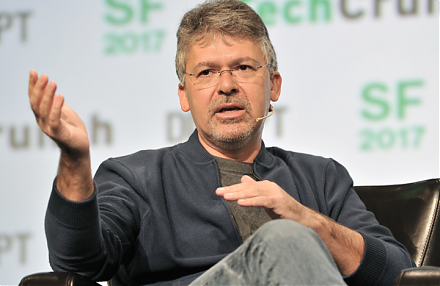
Apple shakes up senior leadership to initiate a new transition from iPhone revenue reliance to media and software services. These changes include the key pr
2017-04-01 06:40:00 Saturday ET
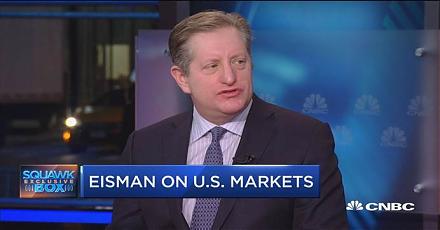
With the current interest rate hike, large banks and insurance companies are likely to benefit from higher equity risk premiums and interest rate spreads.
2023-03-21 11:28:00 Tuesday ET
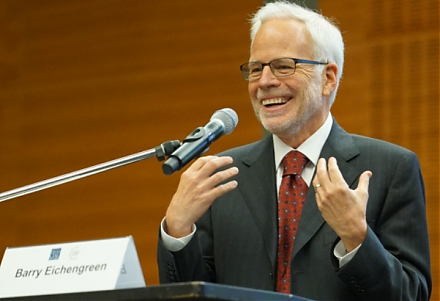
Barry Eichengreen compares the Great Depression of the 1930s and the Great Recession as historical episodes of economic woes. Barry Eichengreen (2016)
2018-08-19 10:34:00 Sunday ET
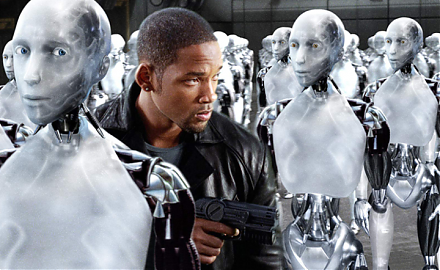
The World Economic Forum warns that artificial intelligence may destabilize the financial system. Artificial intelligence poses at least a trifecta of major
2019-01-02 06:28:00 Wednesday ET
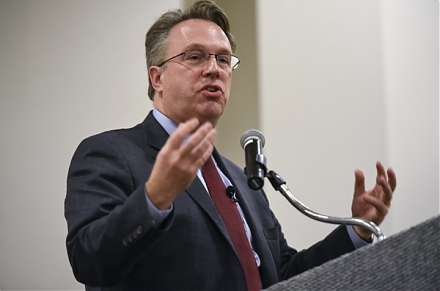
New York Fed CEO John Williams listens to sharp share price declines as part of the data-dependent interest rate policy. The Federal Reserve can respond to
2025-09-24 09:49:53 Wednesday ET
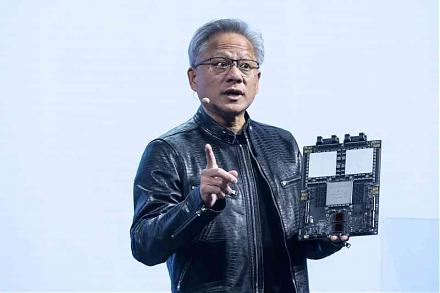
Stock Synopsis: With a new Python program, we use, adapt, apply, and leverage each of the mainstream Gemini Gen AI models to conduct this comprehensive fund